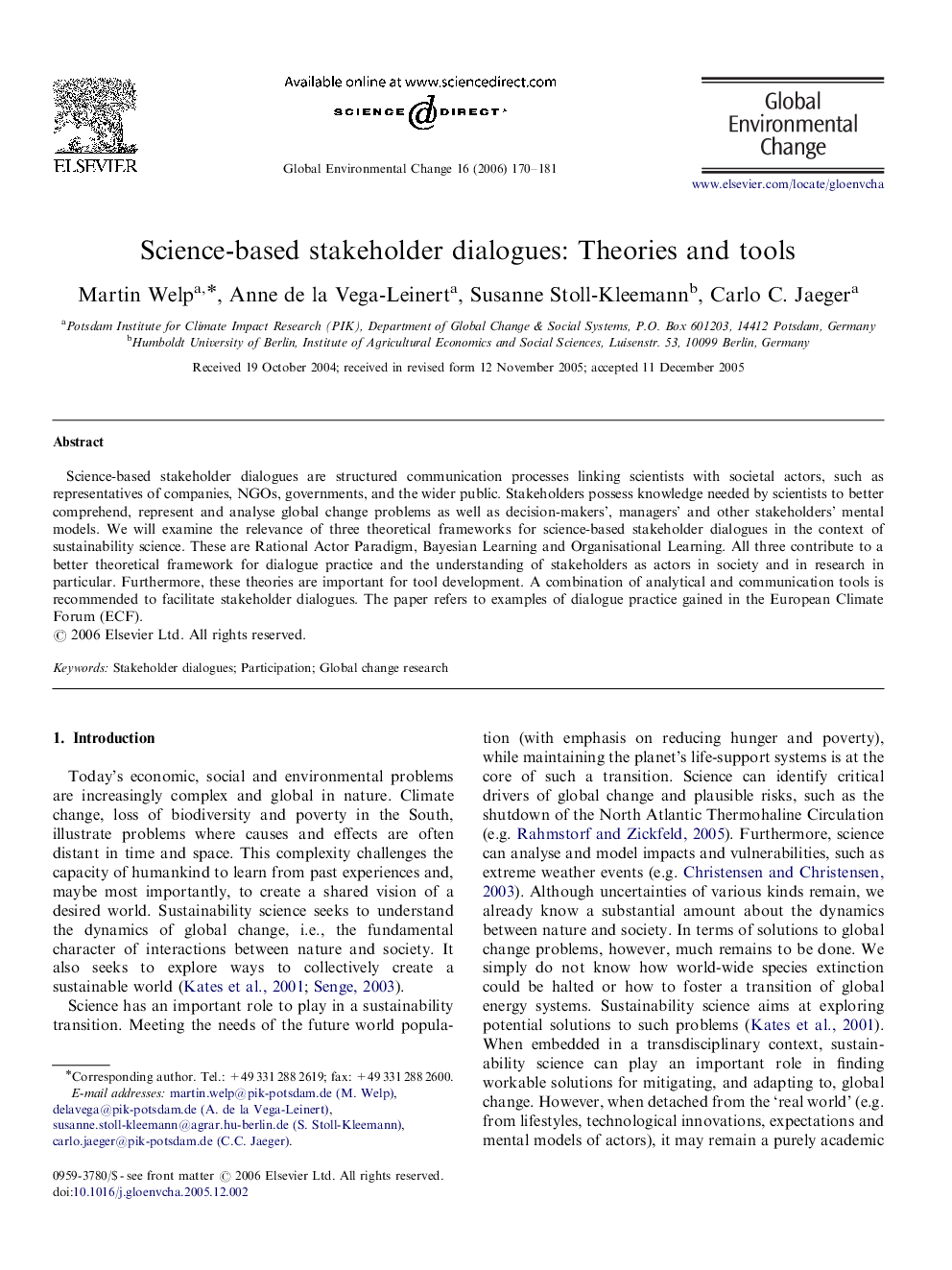| Article ID | Journal | Published Year | Pages | File Type |
|---|---|---|---|---|
| 1055159 | Global Environmental Change | 2006 | 12 Pages |
Science-based stakeholder dialogues are structured communication processes linking scientists with societal actors, such as representatives of companies, NGOs, governments, and the wider public. Stakeholders possess knowledge needed by scientists to better comprehend, represent and analyse global change problems as well as decision-makers’, managers’ and other stakeholders’ mental models. We will examine the relevance of three theoretical frameworks for science-based stakeholder dialogues in the context of sustainability science. These are Rational Actor Paradigm, Bayesian Learning and Organisational Learning. All three contribute to a better theoretical framework for dialogue practice and the understanding of stakeholders as actors in society and in research in particular. Furthermore, these theories are important for tool development. A combination of analytical and communication tools is recommended to facilitate stakeholder dialogues. The paper refers to examples of dialogue practice gained in the European Climate Forum (ECF).
